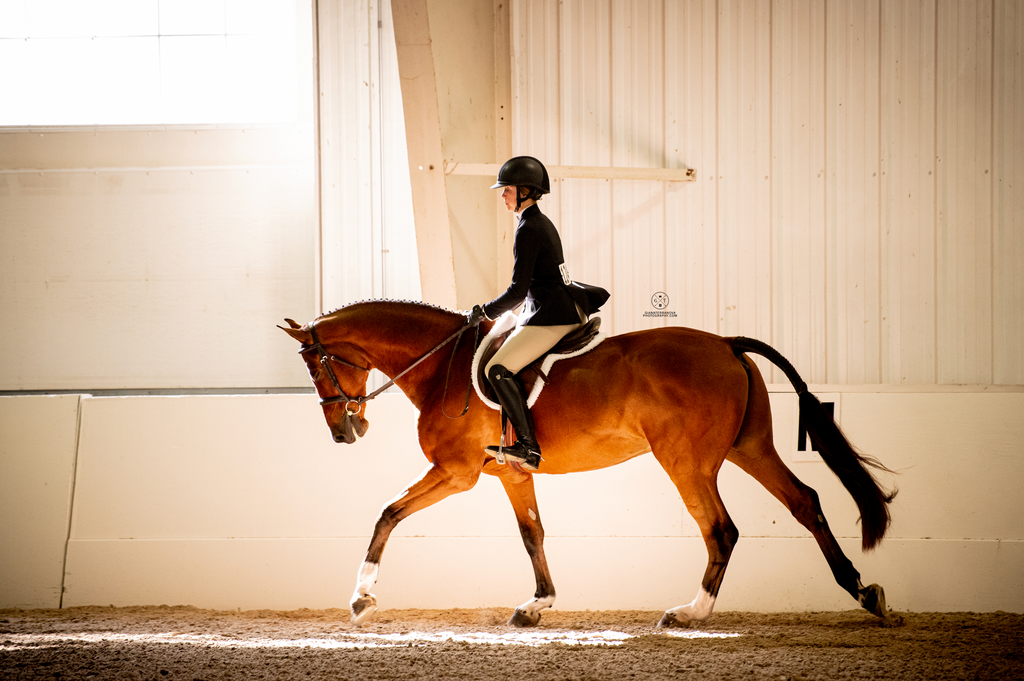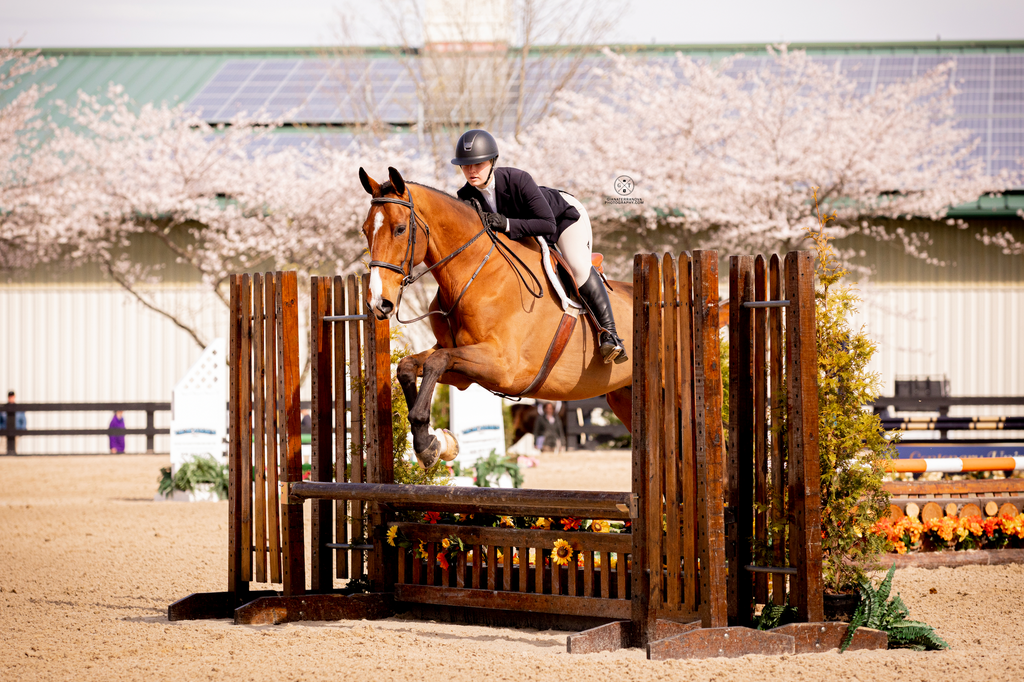What do you think of when you hear the word 'equitation'? Maybe you think about the "perfect" position, or maybe you picture a flawless round that includes roll-backs and trot fences while maintaining a beautiful steady pace. Whatever the thought of equitation may conjure up in your mind, equitation is not just a horse show division or a pretty position when it comes down to brass tacks. Equitation serves as a foundation for all equestrians, regardless of what discipline you ride. It's not just about a certain position or a certain way of riding; it's the way that you as the rider interact with your horse when you're in the saddle. Equitation is, and will always be, an art that exemplifies a rider's overall effectiveness, ability, and horsemanship.
What is ANRC?
Founded in 2006, The American National Riding Commission (ANRC) is an individual competition for junior, collegiate, and adult amateur teams. Each group is scored separately and judged on the following phases:
Phase 1: A Flat Phase (includes USEF Hunter Equitation Tests) worth 35% of the total score
Phase 2: A Hunter Seat Equitation Medal Course worth 30% of the total score
Phase 3: An Equitation Derby Course (natural jumps in a field) worth 30% of the total score
Phase 4: A Written test based on riding theory and a selected stable management topic worth 5% of the total score
 Celia Cram of Savannah College of Art and Design.
Celia Cram of Savannah College of Art and Design.
Riders can earn the highest score in each phase by demonstrating absolute equitation including a harmonious, efficient, and quality hunter movement in the flat and over fences phases. Teams can compete in the Novice Division with fences measured at 2'6 or the National Division with fences at 3'. Riders are also free to compete on a privately-owned horse, a leased horse, or a school-owned horse opening up a world of opportunity for those wanting to take part.
Based on the teachings of the forward riding system by Captain Vladimir Littauer, ANRC aims to promote the American system of forward riding through riding theory and stable management. Along with riding preparation both on the flat and over fences, students are put to the ultimate test (literally) on all things horsemanship.
 Celia Cram of Savannah College of Art and Design.
Celia Cram of Savannah College of Art and Design.
Why ANRC?
So, why ANRC? Individual Novice division winner, Caroline Mancini of Centenary University says, "Personally, I believe equitation is important because every move you make effects you’re mount. If you have a loose lower leg or a rough hand, it will affect your horse. The American forward system of riding in my words is how you use your personal techniques and position to positively affect your horse. This means, the things you do as a rider to help your horse help you to achieve your goals."
 Caroline Mancini Of Centenary University
Caroline Mancini Of Centenary University
Similarly, individual National division winner, Celia Cram of Savannah College of Art and Design shares her insight on the importance of equitation in modern day."Equitation is still important because it teaches riders to maintain proper position and control while riding over very technical courses. The American Forward System of Riding teaches position, control, and schooling to help the rider be able to connect with the horse so he or she can effectively move and jump."
 Caroline Mancini Of Centenary University
Caroline Mancini Of Centenary University
Prep, Prep, Prep
With four phases to prepare for, things can get a bit overwhelming. Not only are riders responsible for their performance under saddle, but also the knowledge and education involved in the process. "The preparation for ANRC for me was fun for me. My coaches Michael and Tara helped me and my horse to be as best prepared as we possibly could have been as a team. In the weeks leading up, I felt confident and strong walking into this competition," shares Caroline Mancini.
Between polishing their flatwork skills to building the confidence and consistency to demonstrate both a medal and derby course, all while studying educational materials in between practice, time is of the essence for these riders. Celia Cram explains,"The preparation for ANRC was just repetition. We would switch out days of doing the derby, medal, or flat phase and just worked on making everything smooth and seamless."
 Caroline Mancini of Centenary University.
Caroline Mancini of Centenary University.
Where Are They Now?
After months of preparation and a successful competition, some may wonder, "so what now?" While the end result is exciting and well-deserved, it's the journey that is meant to be cherished. "My biggest take away from this year's competition was patience. Not only was my horse Pierre new to me, but so was ANRC. I wasn't sure what to expect. I just knew I needed to take everything as it came to me. One event at a time." says Caroline Mancini. She continues, "Equestrian Masterclass gave me confidence and helped push me through. Going into this I was unsure of what was to come. I had never competed in an event like this, so I didn't know what to expect."
 Celia Cram of Savannah College of Art and Design.
Celia Cram of Savannah College of Art and Design.
Not only was Celia Cram winner of the individual National division, but was also one of the seven riders nominated for 'The Focus on the Journey Award' by Equestrian Masterclass. Noëlle Floyd presented this award to one rider from each college, university, and high school attending the 2022 ANRC Championships nominated by their team. The rider chosen prioritizes the journey of riding and horsemanship over show results and encourages others to be the best they can be.
"My biggest takeaway from ANRC was the added knowledge. While practicing for the written test I learned several new things about horse health/vet care. I will continue to utilize Equestrian Masterclass to keep learning everything I can from some of the best of the best in our sport," shares Celia Cram.
Photos by Giana Terranova Photography

